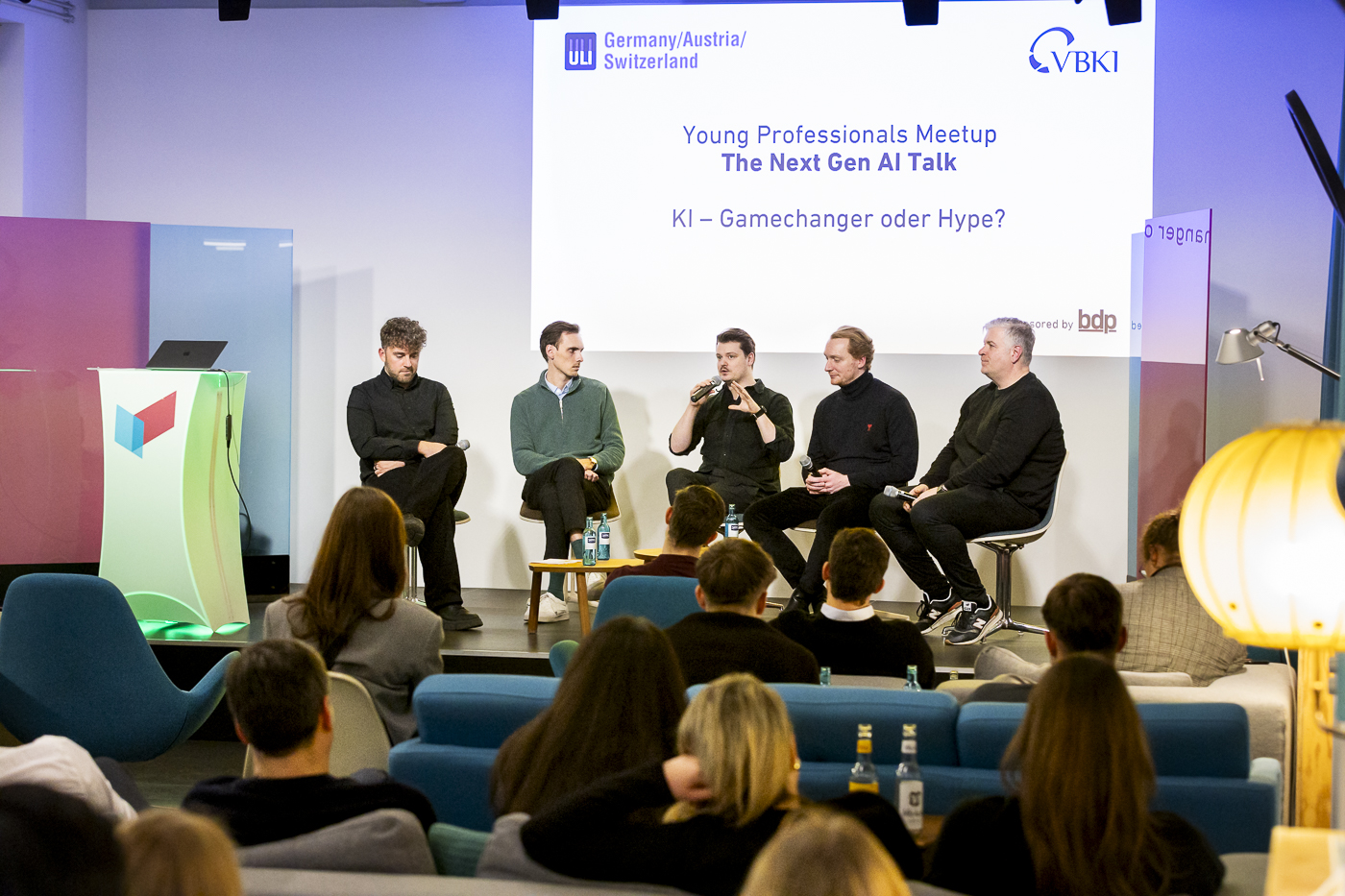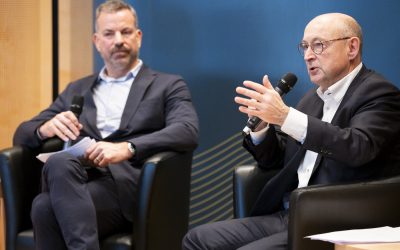"Artificial intelligence must be demystified"
Young Professionals Meetup on artificial intelligence as an opportunity and a challenge
Text: Philipp Zettl | Policy Officer
Since OpenAI released ChatGPT 3.5 to the public free of charge at the end of 2022, artificial intelligence (AI) is no longer just a business topic, but has also arrived in private households: Within about two months, ChatGPT reached over 100 million users - a record at the time. However, while people in the USA have only been talking about the possibilities since then, the initial euphoria in Germany has subsided and questions about "whether" and regulation are increasingly taking center stage. Together with the juniors of the Urban Land Institute, the VBKI Young Professionals therefore wanted to know in a panel discussion "AI - hype or game changer."
After a keynote speech by Peter Hurnaus, Government Director at Microsoft, the panel, moderated by VBKI junior member Robert Schulz, discussed the most pressing issues surrounding the use of AI in companies, society and administration.
The experts agreed that it is essential to enable people to use AI. Peter Hurnaus emphasized that AI has long been indispensable for young career starters - it can no longer be ignored. Nevertheless: "Only 42% of my team use Microsoft Copilot every day - it takes time for new technologies to become widely accepted." Microsoft wants to train over 3 million people in the use of AI in the near future. Gábor László Mándoki was not worried that AI would replace you and encouraged curiosity about working with AI: "Use AI for everything that makes your life easier. It won't replace you, but someone who uses AI will replace you." Looking to the future, the co-founder of Beeta.one still saw a lot of potential for innovation: "AI can't stop at chatbots." However, this will not be the really big AI for the time being. Instead, there will probably be many isolated solutions for specific problems. These silos could in turn be broken down by AI, assumed Johannes Ottmann, CEO and founder of Doings.ai. AI agents could, for example, trigger the right AI depending on the request and thus ensure interoperability between the various AIs.





While technology is advancing rapidly, bureaucracy often fails to keep pace. Peter Hurnaus found clear words: "We are regulating ourselves to death. Data protection puts people in a bad mood. Old white men decide on the welfare of young people." The German administrative apparatus is characterized by a mentality that rewards error avoidance, not innovation: "If you don't make mistakes, you get promoted." Another problem: "There are already over 40,000 pieces of legislation, and new ones are being added from the EU every day - but none of the old ones are being abolished. If we digitize these, we could make processes more efficient." However, "AI technology alone is not enough, it's about the processes behind it," emphasized Johannes Ottmann, CEO and founder of Doings.ai. And resistance in the public sector is particularly strong when it comes to adapting work processes.
Fabian König, Investment Manager at PT1, suggested a solution to make AI even more widespread: "AI needs to be demystified so that it can reach companies and administrations." A task that many young professionals may have felt addressed.
Impressions
To the picture gallery: Please click here>
You might also be interested in
More impact, less bureaucracy
VBKI discussion paper: Three proposals for a sustainable university landscape
"We don't have a knowledge problem, we have an implementation problem"
Business Breakfast: Vonovia CEO Rolf Buch as a guest at the VBKI
Experience politics up close
VBKI Young Professionals as guests at Bellevue Palace









